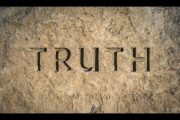
Within days of learning that the revival taking place at Auburn University had involved some coaches at the school, the ever-vigilant anti-faith Freedom From Religion Foundation (FFRF) sent a threatening letter to the school:
Auburn University is a public university, not a religious one. It is inappropriate and unconstitutional for university employees to use their university position to organize, promote or participate in a religious worship event.
These ongoing and repeated constitutional violations at the university create a coercive environment that excludes those students who don’t subscribe to the Christian views being pushed onto players by their coaches.
The anti-faith group had previously sent a warning to Alabama’s Snead State Community College after it received a single complaint from a staffer that somehow the school’s posting of a Bible verse online and offering a prayer before meals offended him and made him feel uncomfortable.
It claimed:
A concerned Snead State Community College employee has reported that you have been imposing your personal religious beliefs onto Snead State employees and treating Snead State as a Christian college rather than the secular public college it is.
They [sic] feel that they [sic] are being forced to bow their [sic] head and participate because not doing so would require them [sic] to expose their [sic] personal beliefs and potentially be subject to retribution.
And when more than 5,000 students and townsfolk attended the “Unite Auburn” event earlier this month, promoted by the wife of an assistant coach, and people began to be baptized (more than 200, at last count), this was too much for FFRF.
Reaching back into history and referring obliquely to the now discredited and irrelevant decision the Supreme Court made in 1947 in Everson v. Board of Education, the anti-religion group warned:
FFRF reminds Auburn that the Constitution’s Establishment Clause — which protects Americans’ religious freedom by ensuring the continued separation of religion and government — dictates that the government cannot in any way show favoritism toward religion.
The Supreme Court has held that the First Amendment requires government neutrality between religions, and between religion and nonreligion. When a public university’s staff members sponsor and participate in religious events, it violates this constitutional requirement by clearly favoring religion over nonreligion.
Upon receiving the second letter from FFRF, Alabama Governor Kay Ivey shot back:
Suffice it to say, [your] letters are misleading and misguided.
Here in Alabama, we stand with [the president of the university and its coaches] and the countless other Alabamians who seek to be true to themselves – and to God – as they live out their lives and seek to do their jobs to the best of their abilities.…
Requiring college officials to entirely remove faith from their lives could well violate those officials’ own religious freedom.
And then Ivey spoke directly to the two co-presidents of FFRF:
The last thing I want is for Alabama college and university officials to be taking legal advice from an organization that does not recognize these points and whose self-avowed purpose is to promote a strict view of so-called “separation of church and state.”
Tyson Langhofer, senior counsel with the Alliance Defending Freedom (ADF), added additional clarification over that “separation” canard that has for decades been foisted onto America by groups such as FFRF to rid the culture of any religious or Christian influence:
Freedom From Religion Foundation’s twisted interpretation of the First Amendment has the potential to crush both students’ and their coaches’ essential right to live out their faith….
As the Supreme Court recently reaffirmed in the Coach [Joe] Kennedy case [Kennedy v. Bremerton School District], religious coaches and students have the right to engage in religious activities on campus in their private capacity.
FFRF’s desire to silence religious students sends a clear message: “You are not welcome here.”
That’s unconstitutional.
FFRF’s “desire” was called out by then-Texas Representative Ron Paul 20 years ago:
Through perverse court decisions and years of cultural indoctrination, the elitist, secular Left has managed to convince many in our nation that religion must be driven from public view. The justification is always that someone, somewhere, might possibly be offended or feel uncomfortable living in the midst of a largely Christian society, so all must yield to the fragile sensibilities of the few.
The ultimate goal of the anti-religious elites is to transform America into a completely secular nation, a nation that is legally and culturally biased against Christianity.
Paul expanded on the canard that FFRF continues to promote:
The notion of a rigid separation between church and state has no basis in either the text of the Constitution or the writings of our Founding Fathers. On the contrary, our Founders’ political views were strongly informed by their religious beliefs. Certainly the drafters of the Declaration of Independence and the Constitution, both replete with references to God, would be aghast at the federal government’s hostility to religion.
The establishment clause of the First Amendment was simply intended to forbid the creation of an official state church like the Church of England, not to drive religion out of public life….
This is the real reason the collectivist Left hates religion: Churches as institutions compete with the state for the people’s allegiance, and many devout people put their faith in God before their faith in the state.
Knowing this, the secularists wage an ongoing war against religion, chipping away bit by bit at our nation’s Christian heritage.
The kerfuffle in Auburn, Alabama, merely reflects a skirmish in that “ongoing war against religion,” with FFRF unwilling to recognize that its objective has been exposed and rendered irrelevant by recent decisions of the Supreme Court.




